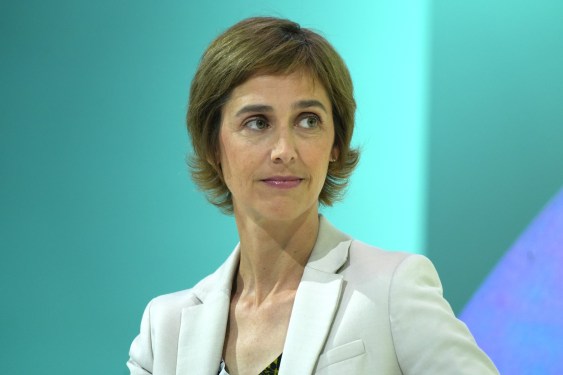Investors once saw Canadian AI startup Cohere as a promising contender to challenge OpenAI and Anthropic in the race to build cutting-edge AI models. Backers poured roughly $1 billion into the company, betting on CEO Aidan Gomez, who co-authored a foundational paper on large language models as a 20-year-old Google intern. However, Cohere’s AI models have lagged behind the latest advancements, and its business hasn’t scaled as quickly as its competitors.
Now, Cohere is bringing in a seasoned research leader to revitalize its AI efforts. The company has hired Joelle Pineau, Meta’s former VP of AI research, who previously led the tech giant’s Fundamental AI Research (FAIR) lab. In her newly created role as Chief AI Officer, Pineau will oversee AI strategy across Cohere’s research, product, and policy teams.
A renowned Canadian AI scientist and McGill professor, Pineau played a key role in the early development of Meta’s open-source Llama AI models alongside neural network pioneer Yann LeCun. She left Meta in May after nearly eight years with the company. For Cohere, this is a major hire, and the company hopes Pineau will drive research breakthroughs, improve its product pipeline, and attract top talent.
The hiring comes at a critical time for Cohere. The company is reportedly seeking to raise up to $500 million at a $6.3 billion valuation—a significant sum, though it pales in comparison to the vast resources of rivals like OpenAI, Google, Meta, and Anthropic. While these competitors aim to develop AI systems that match or surpass human performance across a wide range of tasks, Cohere has a narrower focus. The startup specializes in building AI applications that solve practical problems for enterprises and government agencies, with a strong emphasis on privacy and security.
In an interview, Pineau expressed enthusiasm for Cohere’s real-world, enterprise-focused approach. She noted that many AI companies are singularly focused on artificial general intelligence (AGI) and superintelligence without clear use cases. Pineau pointed to OpenAI’s recent GPT-5 launch, which some found underwhelming, as evidence that achieving AGI may take longer than expected. In the meantime, she sees ample opportunity for practical AI models to drive productivity gains across industries.
As a Canadian, Pineau said she has followed Cohere since its founding in 2019 and is excited to contribute to a homegrown company. Beyond national pride, she views this as a chance to move beyond pure research. At Meta’s FAIR lab, she oversaw long-term projects with timelines ranging from 18 months to a decade. At Cohere, she will work on tighter deadlines while engaging directly with customers and products. Despite having fewer resources than Meta, Pineau believes she will have greater agility in her new role.
Cohere’s latest product, an AI agent platform called North, allows enterprises and government agencies to deploy AI privately on their own infrastructure. This appeals to clients like banks and federal organizations that handle sensitive data. While open-source providers like DeepSeek and Meta offer lower-cost alternatives, Cohere aims to differentiate itself with superior support for private deployments.
Pineau is particularly interested in advancing research around North, exploring ways to develop secure AI agents and creating benchmarks to evaluate these systems. She also wants to study how networks of AI agents interact in real-world settings.
One immediate challenge for Pineau will be filling the shoes of Cohere’s outgoing VP of AI Research, Sara Hooker, who recently announced her departure. Hiring a replacement of Hooker’s caliber may be difficult given the intense competition for AI talent. However, Pineau sees this as an opportunity to attract skilled researchers, noting that some of her former Meta colleagues expressed interest in joining her at a new lab. Still, she emphasized that building a strong team is about more than just recruiting top individuals—it’s about fostering collaboration.
The AI landscape has shifted dramatically since Pineau left Meta. Over the summer, Meta CEO Mark Zuckerberg aggressively recruited top AI researchers, offering some compensation packages exceeding $100 million to join the company’s new Meta Superintelligence Labs. OpenAI responded by increasing pay for its star employees, making it even harder for smaller players like Cohere to compete for talent.
As Meta, OpenAI, and Anthropic invest billions in AI, Cohere must do more with less. For Pineau, this means making strategic research bets that can quickly translate into compelling products, keeping the company in the race against its deep-pocketed rivals.

